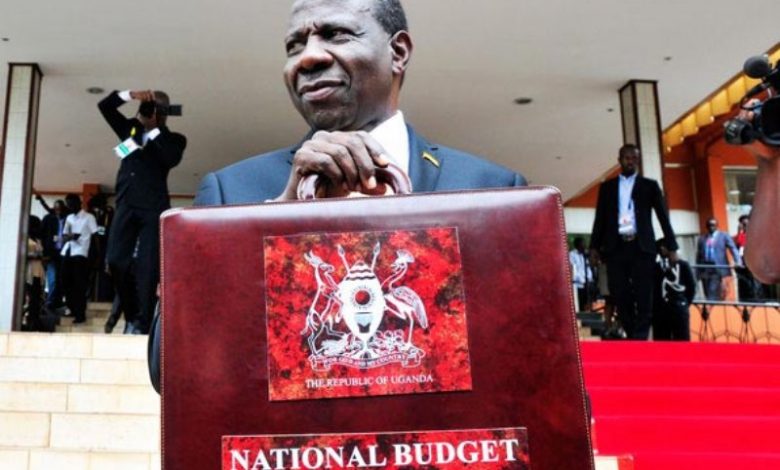Silence speaks: Kasaija mum as president rejects Appropriation Bill 2024
This development follows the recent recall of MPs from recess by Clerk to Parliament Adolf Mwesige, who alerted them of a plenary sitting on 2nd July 2024, with the reconsideration of the Appropriation Bill 2024 being the top agenda item.

The Minister of Finance, Planning, and Economic Development, Matia Kasaija, declined to respond to questions from MPs about media reports that President Museveni had refused to sign the Appropriation Bill 2024 due to Shs750Bn reallocations in the 2024/25 national budget.
“I have no comment on this issue at the moment,” said Minister Kasaija while appearing before Parliament’s Committee on Commissions, Statutory Authorities, and State Enterprises (COSASE).
This development follows the recent recall of MPs from recess by Clerk to Parliament Adolf Mwesige, who alerted them of a plenary sitting on 2nd July 2024, with the reconsideration of the Appropriation Bill 2024 being the top agenda item.
While Minister Kasaija chose to remain silent, Government Chief Whip Denis Hamson Obua defended the President’s decision to return the Appropriation Bill, stating that it did not signify disrespect for Parliament. Obua explained that the Constitution provides for such a situation under Article 91, anticipating disagreements between the Executive and Parliament.
“A question is posed whether this is disrespecting Parliament; the answer is no. Our Constitution, under Article 91, envisioned that there could be dissent between Parliament and the Executive. This is a constitutional process, a constitutional requirement anchored in our national constitution,” remarked Obua.
Allan Mayanja (Nakaseke Central), Vice Chairperson of COSASE, criticized the Executive for its handling of the budget process, citing the last-minute introduction of a corrigenda that inflated the budget to UGX72Trn. “We have been raising issues about this Government being run in a shabby way. They brought a corrigenda on the day they were meant to pass the budget. This shows that the country is being run in a quagmire,” he said.
Obua, addressing the media, declined to reveal the reasons behind the President’s decision, urging patience until the Speaker reveals the President’s concerns in his letter. “Parliament will understand the President’s concerns when his letter is read on the floor. There is nothing like disrespecting Parliament; these are checks and balances between the Executive and Parliament,” he said.
Obua assured that the reconsideration of the Appropriation Bill 2024 would be expedited to avoid delays in fund releases to Government agencies at the start of the 2024/25 financial year on 1st July 2024. “The leadership of Parliament is aware that delaying this process could paralyze the release of funds for the next financial year. That is why the Speaker convened Parliament at the earliest opportunity to address the President’s concerns,” said Obua.
Julius Mukunda, Executive Director at the Civil Society Budget Advocacy Group (CSBAG), warned that the return of the Appropriation Bill poses a risk of delaying government programs and increasing domestic arrears. “The fear of government agencies to commit to the budget will worsen our challenge of fund absorption. We already have Shs14Trn of undisbursed loans, and this amount is likely to increase,” he explained.
Mukunda noted that the return of the Appropriation Bill could exacerbate the issue of domestic arrears, given the meagre allocation of UGX200Bn for their payment against a total outstanding of UGX 10.5Trn. “We calculated that it would take the Government 35 years to clear the current outstanding domestic arrears, provided no more are incurred. If decisions are changed mid-course, arrears will increase, affecting suppliers and the economy,” he added.
Despite these concerns, CSBAG welcomed the return of the Appropriation Bill as an opportunity to rectify budget allocation errors. Mukunda praised the President for addressing the issue and urged the removal of unnecessary expenses, such as UGX 37Bn for cultural leader salaries and UGX8Bn for purchases for Karamoja, which he argued were susceptible to misuse.
“This is an opportunity to correct erroneous budget allocations and remove unnecessary expenses. For example, cultural leaders should not require salaries if they cannot sustain themselves. Similarly, funds for Karamoja need scrutiny to prevent misuse,” Mukunda stated.



